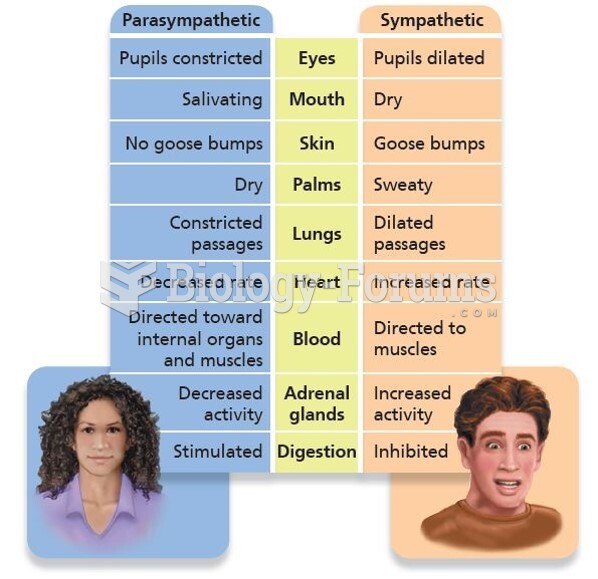|
|
|
The most dangerous mercury compound, dimethyl mercury, is so toxic that even a few microliters spilled on the skin can cause death. Mercury has been shown to accumulate in higher amounts in the following types of fish than other types: swordfish, shark, mackerel, tilefish, crab, and tuna.
Today, nearly 8 out of 10 pregnant women living with HIV (about 1.1 million), receive antiretrovirals.
It is widely believed that giving a daily oral dose of aspirin to heart attack patients improves their chances of survival because the aspirin blocks the formation of new blood clots.
More than 50% of American adults have oral herpes, which is commonly known as "cold sores" or "fever blisters." The herpes virus can be active on the skin surface without showing any signs or causing any symptoms.
More than 4.4billion prescriptions were dispensed within the United States in 2016.
 Evaluation of a child for cystic fibrosis with a sweat chloride test. Sweat is being collected under
Evaluation of a child for cystic fibrosis with a sweat chloride test. Sweat is being collected under
 Comparison of Principles of Abstinence-Only and Comprehensive Sex Education in the Public School Sys
Comparison of Principles of Abstinence-Only and Comprehensive Sex Education in the Public School Sys





